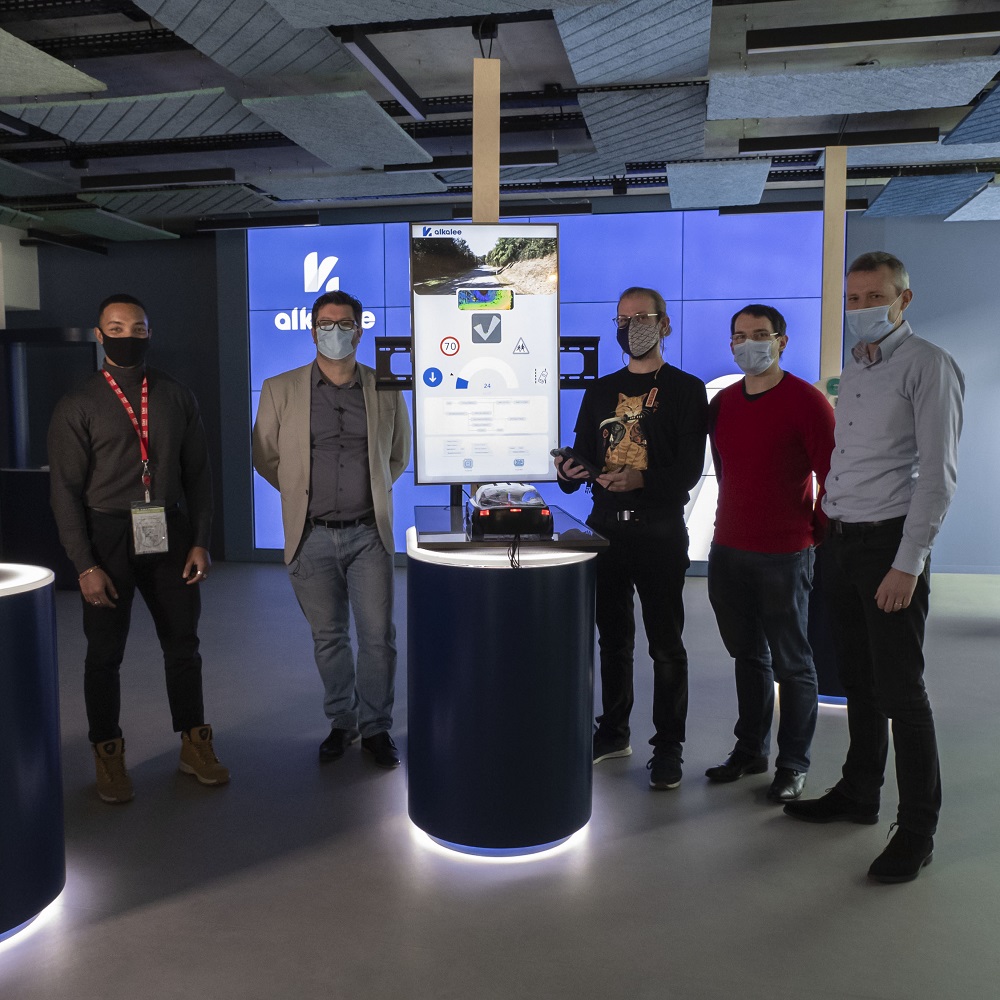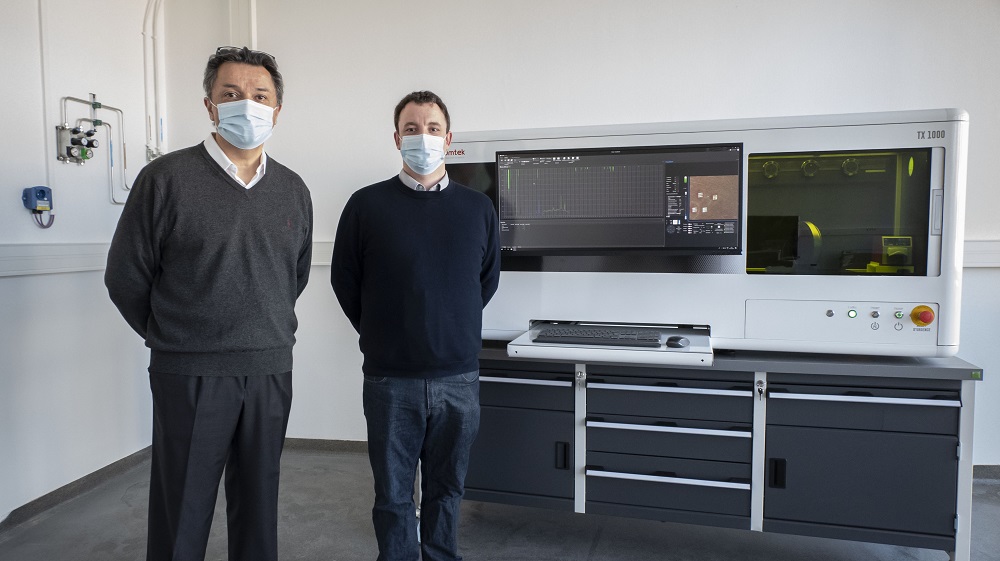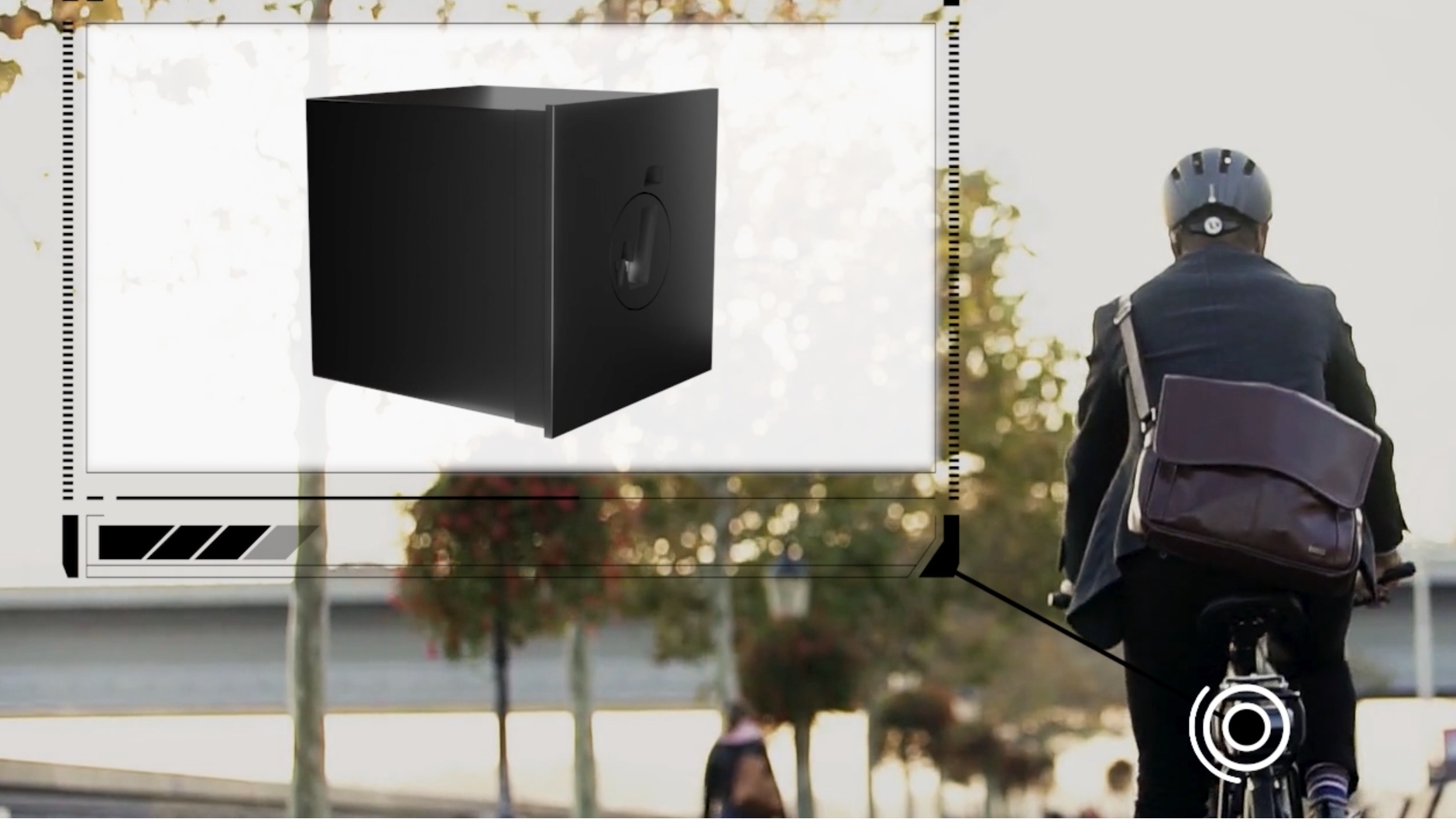
The Alkalee team in front of its demonstrator allowing to simulate in a few clicks the deployment of new functionalities on a vehicle. ©CEA/Alkalee
Alkalee, a spin-off startup from CEA-List, resulted from the FACE project (a collaboration between CEA, Renault, Mitsubishi and Nissan), has therefore designed a software suite equipped with tools for the rapid and secure integration of functionalities on a centralized and flexible platform. Compatible with the vehicle's existing infrastructure, it facilitates the integration of new services at any time, particularly in terms of connectivity and autonomy. For the CES 2021, Alkalee shows a very realistic demonstrator that simulates the deployment of new functionalities on a vehicle in just a few clicks.
Read more about Alkalee here.
Medicine of the future: iUMTEK: for rapid quantitative and qualitative diagnosis of air pollution
Startup of the Cleantech (innovations in the field of risk prevention, health and environment) co-founded with the CEA Investment, iUMTEK designs industrial chemical analyzers in situ, making real-time measurements. These devices use laser-induced plasma spectroscopy (LIBS for Laser Induced Breakdown Spectroscopy). Evaporated by laser, the material locally forms a plasma analyzed by a spectrometer. Its emission lines are compared to a database that detects the elements present and their concentrations. This technique can be used to analyze all types of materials.

Part of the iUMTEK team in front of the TX 1000 LIBS analyzer. ©CEA/iUMTEK
iUMTEK presents at CES its TX 1000 LIBS analyzer. This versatile instrument can quickly and reliably detect elemental chemicals in solids, liquids and gases. This technology could for example monitor and analyze air quality in real time and quickly alert industrialists and authorities in case of pollution.
Energy Transition | Wise-Integration: The World's Smallest Electric Bike Charger
Most of the devices we use need to be recharged daily. Wise-Integration, a CEA-Leti spin-off startup, has set itself the goal of reducing energy losses in power converters by developing very compact, fast and integrated power supplies.

©DR
For the 2021 CES, Wise-Integration is presenting a prototype of the world's smallest electric bicycle charger, the Power Cube. The 100W Power Cube measures 3inch3 and weighs 130g, three and four times less than current chargers, respectively. Its secret: a reduced number of components and a clever architecture of the electronic elements. With a record efficiency of 96%, the Power Cube can be integrated into electrical appliances or directly into walls without the risk of overheating, eliminating today's bulky external chargers.